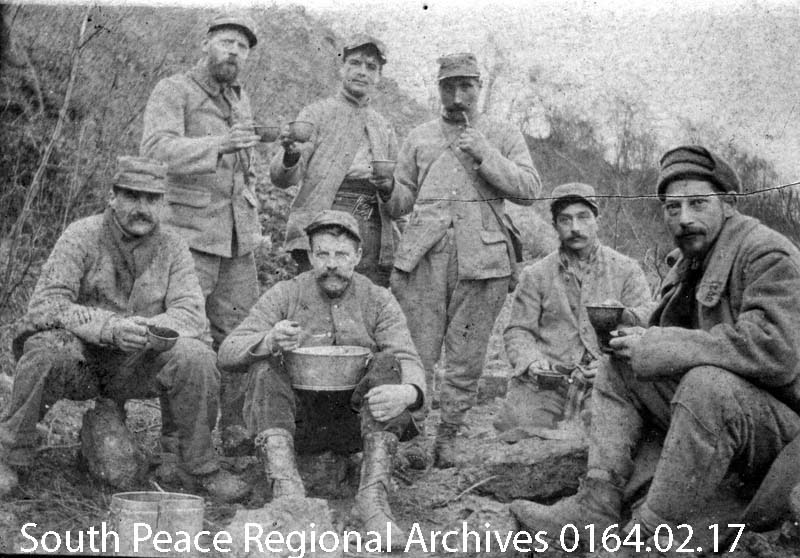Considering the many new developments in weaponry, equipment, and military tactics during World War I, it is certainly not surprising to see how many new words and phrases that were coined during this time. Some of them were based on words from other languages as men representing various cultures and backgrounds rubbed shoulders on a day to day basis, others were made up and offer a glimpse into the humor that the soldiers employed to face the horror of life in the trenches. Enjoy this selection of ten slang words from the Great War, and be sure to check out the sources below for more.
Napoo
derived from the French term “il n’y a plus”, which the Canadian and British soldiers took to mean ‘finished’, ‘dead’, or ‘completely destroyed’
Pogey-bait
the Canadian and American term for any sweet snack
Spike-bozzled
usually used to describe completely destroyed aircraft
Potato Masher
slang for German hand grenades
Whizz Bang
nickname for a small-calibre shell
Barkers
trench slang for army sausages, which soldiers believed contained dog meat
Thingamajig
a made-up trench word used to refer to the new devices invented during the war
Bumf
originally slang for toilet paper, but later on referred to any communication from headquarters
Blighty
another word for “England”; a ‘blighty wound’ would be wound that got a soldier sent back to England
Strafe
this could mean anything from bombardment to a severe reprimand; it came from the German propaganda slogan “Gott Strafe England”, meaning “God Punish England”
Sources:
Canadian War Museum – Soldiers’ Slang
War History Online – A to Z of World War I Trench Slang
BBC News – English Expressions Coined in World War I
